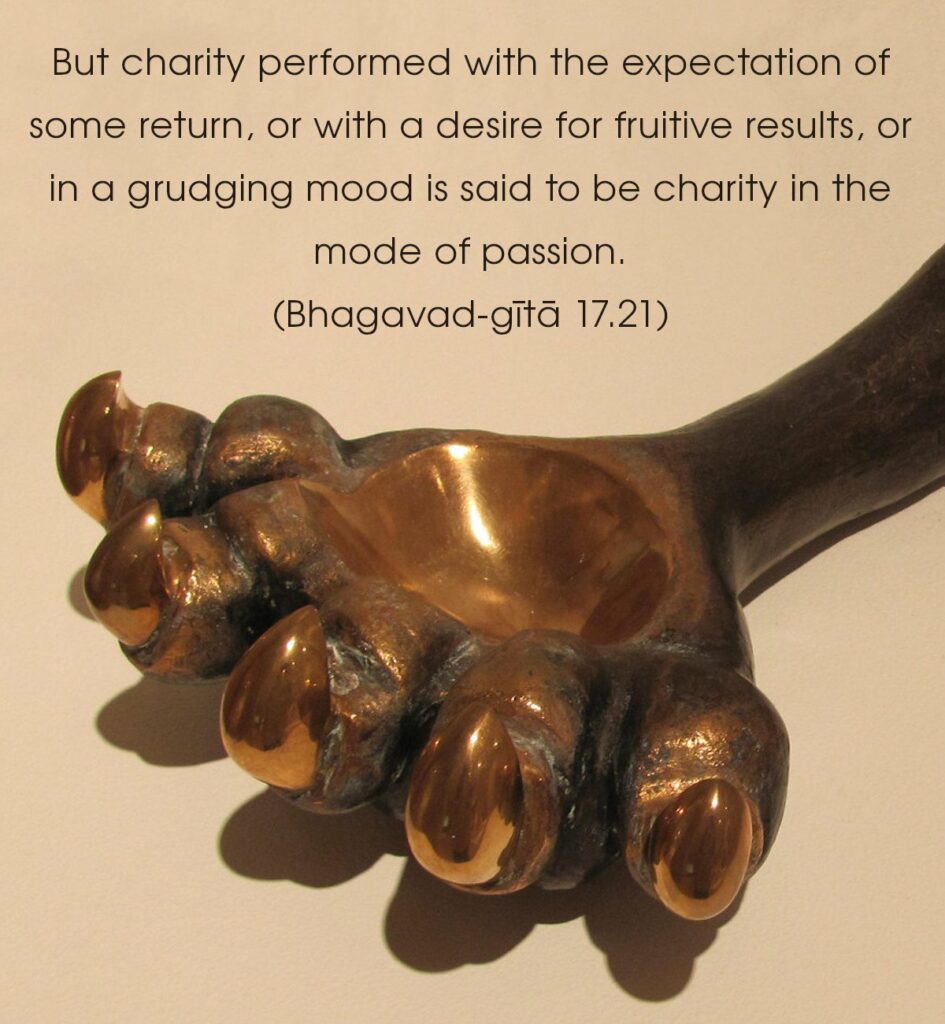यत्तु प्रत्युपकारार्थं फलमुद्दिश्य वा पुन: |
दीयते च परिक्लिष्टं तद्दानं राजसं स्मृतम् || 21||
yat tu pratyupakārārthaṁ phalam uddiśhya vā punaḥ
dīyate cha parikliṣhṭaṁ tad dānaṁ rājasaṁ smṛitam
yat—which; tu—but; prati-upakāra-artham—with the hope of a return; phalam—reward; uddiśhya—expectation; vā—or; punaḥ—again; dīyate—is given; cha—and; parikliṣhṭam—reluctantly; tat—that; dānam—charity; rājasam—in the mode of passion; smṛitam—is said to be
Translation:
But that which is given for the sake of recompense or with the expectation of fruit or in a grudging mood is accounted as of the nature of rajas.
Commentary:
The Lord insists on charity, being pure and uncontaminated by hopes and expectations of return benefit here or hereafter. Such calculated gifts come under some kind of commercial transaction. Such charity is Rajasic. Such gifts and presents given to persons do not come under Dana at all. It is just a social celebration and no more. What we are concerned with here is spiritual purity and realisation. For, this charity done with true compassion, with a heart overflowing with love, as an end itself, as an act of service to God, who is present in the form of suffering humanity is the highest type.
Pariklishtam: Charity is sometimes done grudgingly. The giver is troubled, that he is losing his property or valuable things. Or he may be acting under pressure from others. Such charity leads nowhere. It is suffering both for the giver and the receiver. Charity should be done out of the fulness of heart, with joy and a high sense of duty. All men should practice this type of Sattvic Dana.
Question: What is Rajasic Charity?
Answer: It is done with a view to receive something in return 2. It is done to get some reward 3. done grudgingly and painfully.
Bhagavad Gita: Chapter 17 🔻 (28 Verses)
